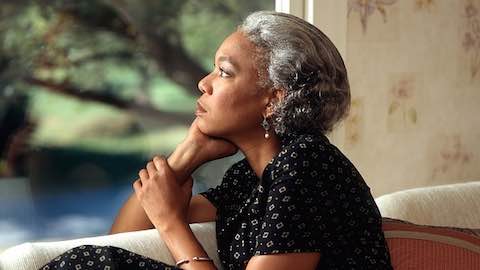- MENU
- HOME
- SEARCH
- WORLD
- MAIN
- AFRICA
- ASIA
- BALKANS
- EUROPE
- LATIN AMERICA
- MIDDLE EAST
- United Kingdom
- United States
- Argentina
- Australia
- Austria
- Benelux
- Brazil
- Canada
- China
- France
- Germany
- Greece
- Hungary
- India
- Indonesia
- Ireland
- Israel
- Italy
- Japan
- Korea
- Mexico
- New Zealand
- Pakistan
- Philippines
- Poland
- Russia
- South Africa
- Spain
- Taiwan
- Turkey
- USA
- BUSINESS
- WEALTH
- STOCKS
- TECH
- HEALTH
- LIFESTYLE
- ENTERTAINMENT
- SPORTS
- RSS
- Woman to Woman

Woman to Woman: You'll Be Happy to Know You'll Get Happier Every Day
By Ana Veciana-Suarez
"What a wonderful life I've had! I only wish I'd realized it sooner." --
My back hurts, my left shoulder's stiff and I've stopped being surprised by the insouciant glimpse of gray on my head. I need eyeglasses to write a sentence and, sometimes, strong black coffee to keep the words flowing. In other words, I'm marching straight into the inevitable recognition of my mortality.
But soon I'll be happy, happier than I've ever been. Or so I'm told.
When the thrice-married French writer Colette famously uttered those words, she was long past her youth, perched on the superb vantage point of late life. She obviously had made peace with her decisions, albeit tardily. She was wise.
I was reminded of Colette when a recent study on happiness published in the Proceedings of the
In spite of physical pains. In spite of heartaches. In spite of the realization one is running out of time.
Happiness, researchers say, has a U-shaped relationship with age. People are relatively happy until they're 18 -- then life happens. Mortgages, jobs, children, relationships, disappointments with a capital D. So that youthful feel-good quality heads south until one hits 50. After bottoming out in the early 50s, however, people grow steadily happier, and by the time they're 85, they're again pretty pleased with themselves.
Nobody really knows why. The study didn't look into what makes people happy, and certain traits -- sex, employment status, children at home, having a partner -- didn't make much of a difference. Age seemed to be the only common denominator among the blissful.
Admittedly, this lack of explanation has proved frustrating for researchers, pundits and lay people who, like me, believe what our founding fathers wrote about inalienable rights and the pursuit of happiness. We want an easy potion, a 12-step process, something we can keep for ourselves and market.
Happiness is already big business. Stroll the aisles of any bookstore -- which, for me, is joy-inducing in and of itself -- and you'll find hundreds of self-help books. The implicit promise of getting organized, losing weight, moving into the corner office or making lots of money is simple: achieving happiness. There's even a
I'll venture my own theory. Age brings perspective. Experience provides another view, a better angle, a sharper prism. The minor tragedies of daily life are no longer the end of the world and the major ones -- the loss of a job, the death of a loved one, the cataclysmic destruction of property -- turn out to be survivable. You learn to savor the moment, to appreciate the here and now.
But there's a catch: It takes a lot of years and hard knocks for us to get to that point, a lot of mistakes and missed opportunities. If only there were a way to figure it out before the wrinkles came.
AUTOS | HOBBIES | EDUCATION | FAMILY | FASHION | FOOD & RECIPES | HOME DECOR | RELATIONSHIPS | PARENTING | PETS | TRAVEL | WOMEN
Woman to Woman: "You'll Be Happy to Know You'll Get Happier Every Day"
© Distributed by Tribune Media Services